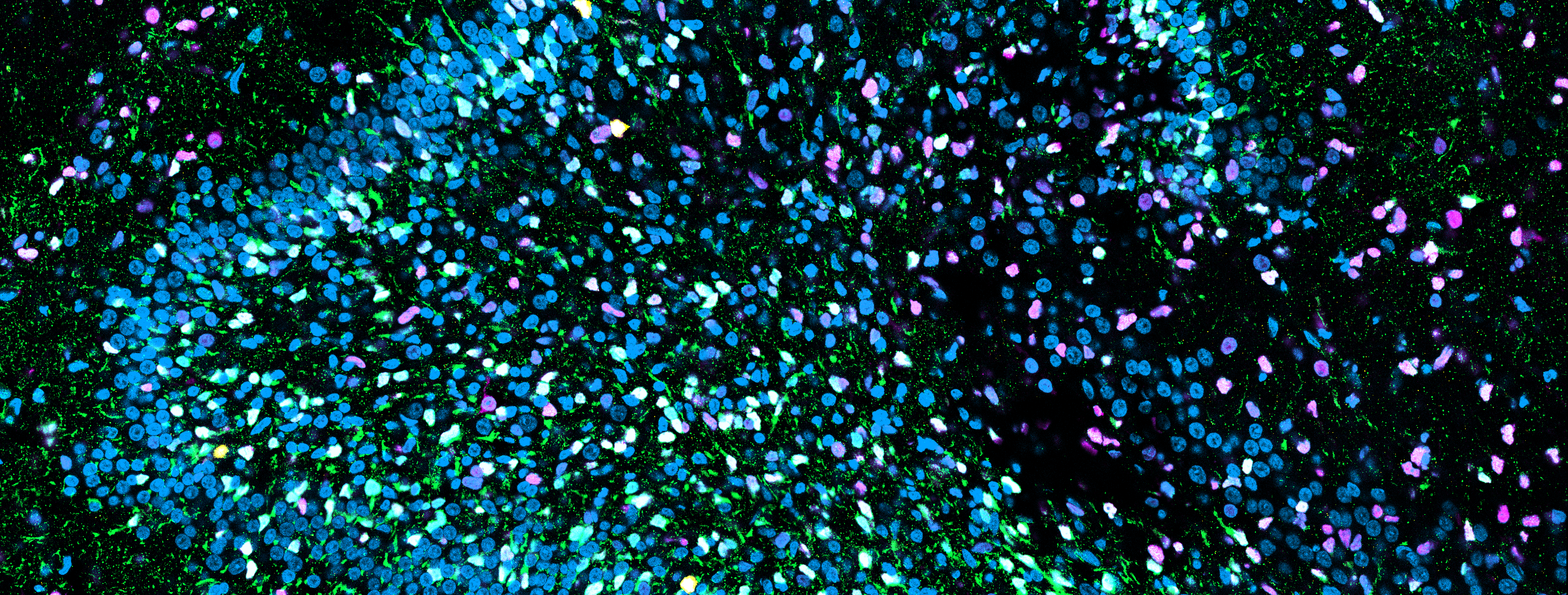Speaker
Description
PRR12 (Proline rich 12) gene is encoding for a nuclear protein but its function in chromatin regulation remains elusive. We collected preliminary evidence that PRR12 can interact with the transcription factor SOX2, a pivotal regulator of neural stem cell identity and self-renewal. In humans, heterozygous loss-of-function mutations cause the Neurocular syndrome. The aim of our project is to uncover the role of PRR12 and delve into the molecular consequences of its disruption in an in vitro and in vivo setting. We started by generating human embryonic stem cell (hESC) lines carrying targeted mutations through the CRISPR/Cas9 system. Targeted nucleotide insertions and/or deletions were introduced into the sequence leading to premature stop codons with consequent nonsense-mediated mRNA decay. As such, we have established a set of isogenic hESC lines carrying heterozygous or homozygous mutations in the PRR12 gene. Next, we differentiated these cells into neural progenitors and cortical neurons, two cell types highly affected in the disease. Interestingly, Prr12 mutant neural progenitor cells (NPCs) showed a higher cell proliferation rate accompanied by an impairment in neuronal differentiation and maturation. Prr12 mutant neurons displayed abnormal morphology with impaired neurite growth. Molecular and genomics studies are in progress to trace the underlying mechanisms of these significant deficits. In a parallel effort, we generated a transgenic mouse line carrying a Prr12 floxed allele, by flanking exon 6 with loxP sequences through homologous recombination in ES cells. Prr12 floxed mice have been crossed with mice expressing the Cre ubiquitously or only in the CNS. Full Prr12 knock-out mice are lethal perinatally suggesting that Prr12 plays a fundamental role in tissue functions. We are currently analyzing the cellular defects caused by Prr12 gene loss in both mouse models.
| Author(s) | Irina Cutei (1), Linda Bossini (1), Federica Banfi (2), Mirko Luoni (3), Alessandro Sessa (4), Vania Broccoli (4, 5) |
|---|---|
| Affiliation(s) | (1) University Vita-Salute San Raffaele Milan, (2) Human Technopole Milan, (3) CNR Neuroscience Institute Milan, (4) IRCCS San Raffaele Hospital Milan, (5) CNR Neuroscience Institute |

